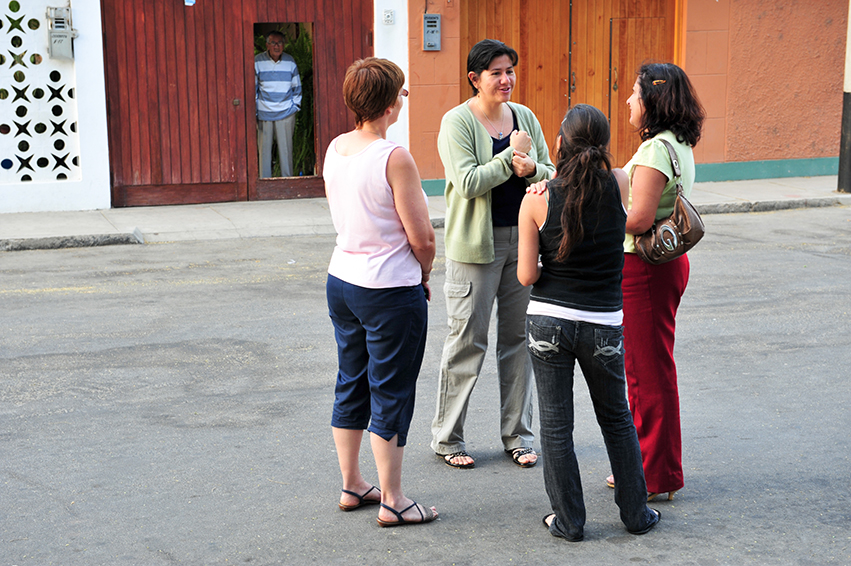
Missionary Life
Does God Care About Your Work?
June 26, 2018
by Wesley Mills

For the last couple of hundred years, the western world has viewed life as “sacred vs. secular.” Since the Enlightenment Age, we’ve emphasized God coming to redeem you (personal profession of faith) over God coming to redeem the world (making all things right when He returns).
There is a feeling that the work you do from Monday to Saturday is different from what you do on Sunday. This line of thinking subverts the work of individuals in the workplace as “less than” because it’s considered secular work rather than sacred.
But the truth is that God created work. In fact, God was the original worker, creating the world. Work became hard when sin broke into the world (Gen. 3:17), but work itself was not a result of the fall. Before sin entered the world, Adam and Eve worked to cultivate the land and subdue it (Gen. 1:27-28). And the Bible describes the new heaven and new earth as a city where we will still most likely work.
Even Jesus Had a Day Job
When we look at the life of Jesus, we tend to focus on His three years of “full-time ministry.” But many years prior were spent working.
We see Jesus referred to as a carpenter in Mark 6:3, and the son of a carpenter in Matthew 13:55. He probably worked in an obscure woodworking shop in Nazareth, crafting, building and repairing wood — a rich irony and symbiotic of how He crafts, builds and repairs us in His image through a wooden cross.
Many of Jesus’ disciples were fishermen when He found them. This is a literal example of “having dominion over the fish of the sea” (Gen 1:28), but no less authentic.
It wasn’t as if Jesus found them working in “professional ministry” and said, “Come do professional ministry with Me now.” Instead, He found them doing an occupation that was meaningful, paid the bills, and made good use of their skills.
I’m sure there were days where the disciples dreaded going out to catch fish or collecting taxes from civilians. Those days exist for us as well. Our work will not always provide the most life-giving moments, and there will be days where it will feel void of purpose, meaning and value. But we are not to worship our work; we are to view our work as worship.
Placing ultimate value and purpose in our work will leave us disillusioned and disappointed because our work was never meant to hold the weight of anything ultimate. Rather, work is a tool to serve our ultimate joy, Jesus.
What It Means to Work to God’s Glory
In 1 Corinthians 10:31, Paul writes, “So whether you eat or drink or whatever you do, do all to the glory of God” (emphasis mine). In whatever you do: your work as a cook, your work as an executive, pilot, civil engineer or comedian is all to be done to honor God.
So what does it tangibly look like to work to the glory of God?
- It means submitting to your employer as if they were Christ. (Eph. 6:5–9)
- It means working with excellence on tasks, minute details and various projects. (1 Cor. 10:31)
- It means honoring your co-workers, treating them with respect, dignity and value. (Rom. 12:10)
- It means praying for your co-workers, rejoicing with them, and weeping with them. (Rom. 12:11-17)
- It means viewing your work as work done for the Lord, not man. (Col. 3:23)
Work is not something that we must do, but are privileged to do. Tim Keller puts it like this,
“Most American Christians have been taught to seal off their faith-beliefs from the way they work in their vocation. The Gospel is seen as a means of finding individual peace and not as a ‘world-view’ – a comprehensive interpretation of reality that affects all we do. But the Gospel has a deep and vital impact on how we do art, business, government, media, and scholarship. Churches must be highly committed to support Christians’ engagement with culture, helping them work with excellence, distinctiveness, and accountability in their professions and in ‘secular work.’ Developing humane, yet creative and excellent business environments out of our understanding of the Gospel can be part of the work of restoring creation in the power of the Spirit. Bringing Christian joy, hope, and truth to embodiment in the arts is also part of this work.”
Maybe you’re not an artist like Michelangelo or a businessman like Warren Buffett. Maybe you’re a waitress in a small town and it feels like you’re working in obscurity. You are not; your work has meaning and purpose. The way you honor your boss, provide food for the table and are diligent with tasks tangibly show the love of God.
Maybe you’re a barista who enjoys making coffee. A tangible way to express the love of God is providing good customer service, cleaning the shop unsolicited and making equitable and delicious coffee.
Or maybe you work as an executive in a corporation. Expressing love to your neighbor is asking your colleagues thoughtful questions and crafting integritous and beneficial business deals.
Or maybe you’re into the arts. Loving God and neighbor means performing, painting, singing or writing in such a way that folks who observe are captivated by a deeper sense of brokenness and redemption.
We were made to work and reflect the image of God when we work. Similar to how we view marriage as imitating Christ and the Church, we view work as imitating Creator and creation. Our work says something about who God is — His design, His order, His purpose. May the way in which we work — and the work itself — point to Jesus, for whom our work is all about.

